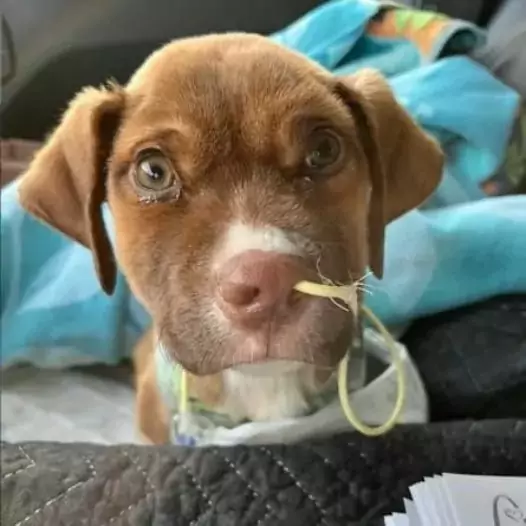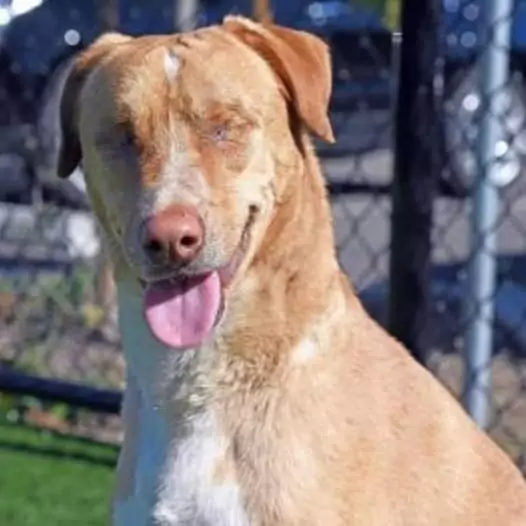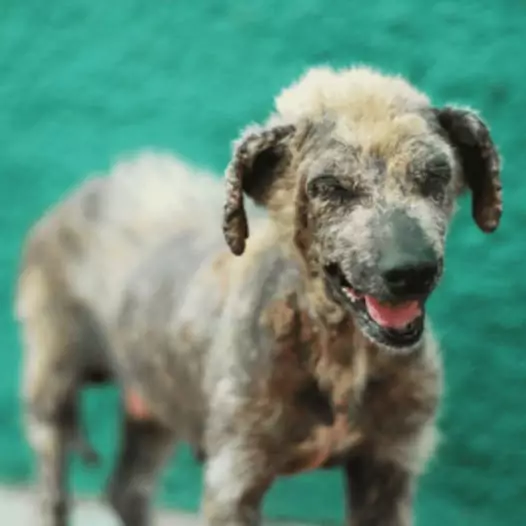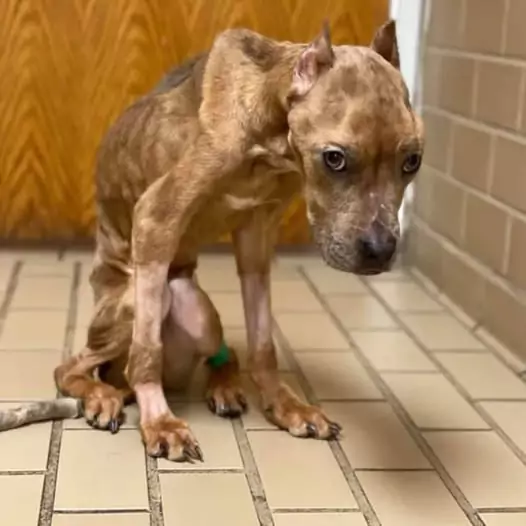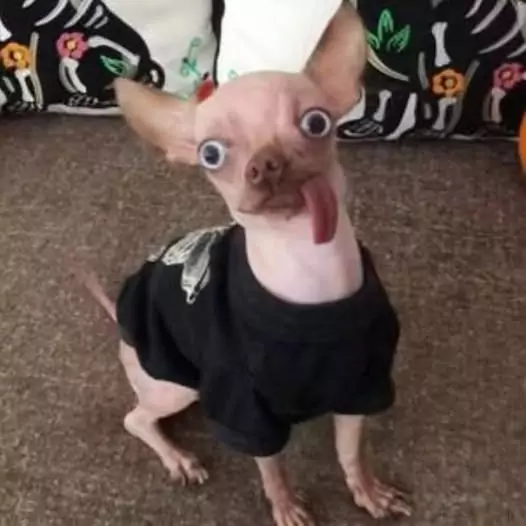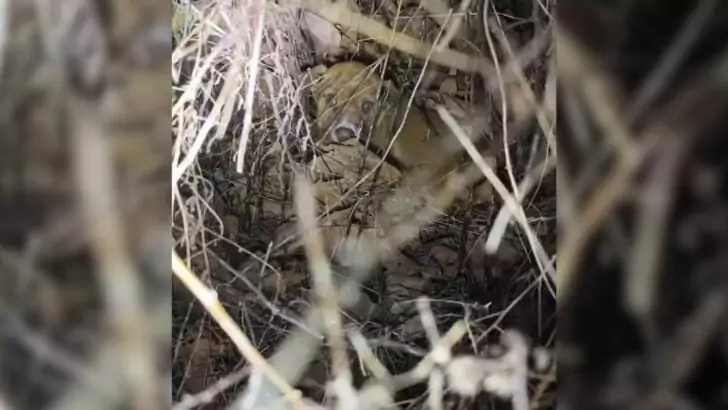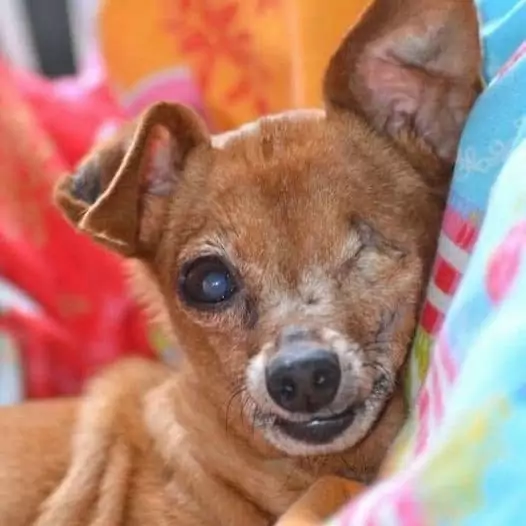
Temo’s world was a rich tapestry woven from sounds and scents. He couldn’t see the vibrant colors of the flowers blooming in the park, the playful shadows cast by the trees, or the smiling faces of the people who walked by. His world was defined by the rustling of leaves under his paws, the distant hum of traffic, the comforting scent of freshly cut grass. He’d been blind since birth, and while he didn’t know any different, he sensed a subtle distance between himself and the world around him.
He’d listen intently as people approached, their voices often softening as they greeted other dogs. He’d hear the excited barks, the playful yips, the gentle coos. He’d perk his ears, hoping someone would stop at his side, offer a gentle touch, a kind word.
Sometimes, a hand would reach down, stroking his soft fur, and a voice would say, “Oh, you poor thing.” He didn’t understand the “poor thing” part. He didn’t feel poor. His world was full, just different.
But more often, the footsteps would pass him by, moving on to the next dog, to the next, to dogs with bright, seeing eyes that could meet their gaze. He’d hear hushed whispers. “He’s blind,” someone would say, their voice tinged with pity or hesitation. “It must be difficult.”
He didn’t understand the hesitation. He knew he could navigate his surroundings with remarkable confidence, relying on his other senses to guide him. He knew the layout of the park, the location of his favorite sniffing spots, the path back to the shelter where he lived. He could even recognize the distinct scents of the different volunteers, knowing who was approaching before they even reached him.
He’d think, They think it’s difficult. They think I’m too much trouble. He’d tilt his head slightly, his ears twitching as he listened to the fading footsteps. He’d feel a pang of sadness, a quiet ache in his heart.
He longed for the same kind of interaction he heard the other dogs receiving: the playful banter, the excited exclamations, the feeling of being chosen. He longed to feel the warmth of a loving home, the comfort of a soft bed, the joy of a family to call his own.
He’d often curl up on his bed in the shelter, his head resting on his paws, a quiet sigh escaping his lips. He’d think about his blindness, about the way it seemed to create a barrier between him and the people who visited.
He’d think, Is it too much to ask? Is it too difficult to love a dog who can’t see? The question echoed in his mind, a constant, nagging worry.
But deep down, a small spark of hope still flickered within him. He knew he had a big heart, a playful spirit, and an unwavering capacity for love. He might not see the world with his eyes, but he felt it deeply, with all his other senses.
He’d think, I might be blind, but I’m still a good dog. I still have so much love to give. He believed, with unwavering conviction, that he deserved to be loved, regardless of his limitations. He just hoped that someone, someday, would see past his blindness and recognize the loving companion he truly was. He hoped someone would understand that a blind dog could still bring just as much joy, just as much love, into a home as any other dog. He hoped, more than anything, that people could accept him, just as he was.

